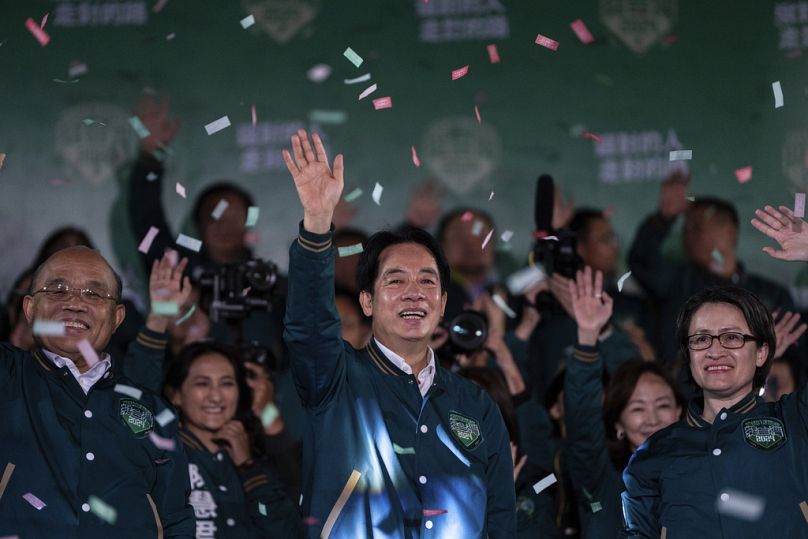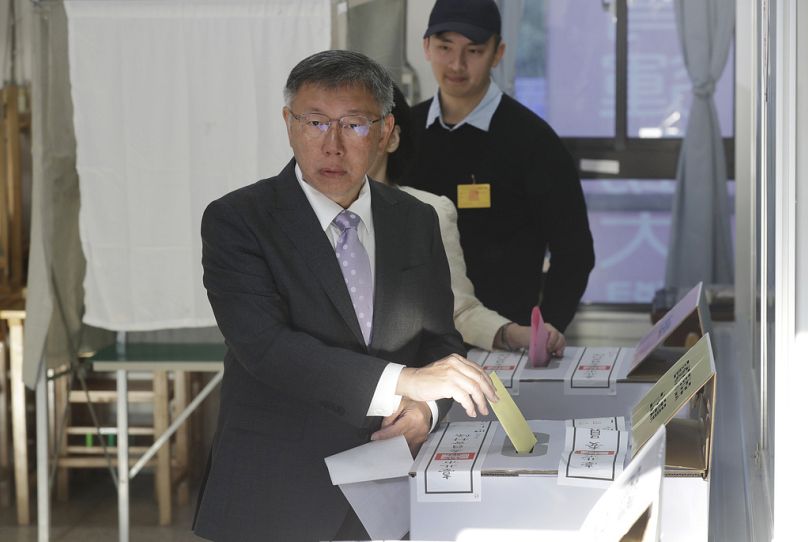Ruling-party candidate Lai Ching-te has emerged victorious in Taiwan’s presidential election and his opponents have conceded. Beijing strongly opposed the current Vice President Lai Ching-te, calling the poll a choice between war and peace.
Ruling-party candidate Lai Ching-te emerged victorious in Taiwan’s presidential election on Saturday and his opponents conceded - a result which will determine the trajectory of the self-ruled democracy’s relations with China over the next four years.
China had called the poll a choice between war and peace. Beijing strongly opposes Lai, the current vice president who abandoned his medical career to pursue politics from the grassroots to the presidency.
At stake is peace, social stability and prosperity on the island, 160 kilometres (100 miles) off the coast of China, which Beijing claims as its own and to be retaken by force if necessary.
While domestic issues such as the sluggish economy and expensive housing also featured prominently in the campaign, Lai's Democratic Progressive Party's appeal to self-determination, social justice and rejection of China's threats ultimately won out. It's the first time a single party has led Taiwan for three consecutive four-year presidential terms since the first open presidential election in 1996.
At a post-election news conference, Lai thanked the Taiwanese electorate for “writing a new chapter in our democracy. We have shown the world how much we cherish our democracy. This is our unwavering commitment.”
He added: “Taiwan will continue to walk side by side with democracies from around the world... through our actions. The Taiwanese people have successfully resisted efforts from external forces to influence this election."
Lai and incumbent President Tsai Ing-wen reject China’s sovereignty claims over Taiwan, a former Japanese colony that split from the Chinese mainland amid civil war in 1949. They have, however, offered to speak with Beijing, which has repeatedly refused to hold talks and called them separatists.
Beijing was believed to have favoured the candidate from the more China-friendly Nationalist party, also known as Kuomintang, or KMT. Its candidate, Hou Yu-ih, also had promised to restart talks with China while bolstering national defence. He promised not to move toward unifying the two sides of the Taiwan Strait if elected.
In his concession speech, Hou apologised for “not working hard enough” to regain power for the KMT, which ran Taiwan under martial law for nearly four decades before democratic reforms in the 1980s.
“I let everyone down. I am here to express my sincerest apologies, I’m sorry," Hou said in front of an audience whose numbers fell well short of expectations.
A third candidate in the race, Ko Wen-je of the smaller Taiwan People’s Party, or TPP, had drawn the support particularly of young people wanting an alternative to the KMT and DPP, Taiwan’s traditional opposing parties, which have largely taken turns governing since the 1990s.
Ko said that dialogue between the sides was crucial, but that his bottom line would be that Taiwan needs to remain democratic and free.
“At least this time the TPP has become a critical opposition power. I would like to say thank you to everyone again, as the chairman of the TPP," Ko said. “Each vote represents recognition and support for us.”
Chen Binhua, spokesperson of the Chinese Cabinet's Taiwan Affairs Office, said that Beijing wouldn't accept the election result as representing “the mainstream public opinion on the island,” without giving any evidence or justification.
“This election cannot change the basic situation and the direction of cross Strait relations, nor can it change the common desire of compatriots on both sides to get closer and closer, nor can it stop the general trend that the motherland will eventually and inevitably be reunified,” Chen said.
The United States, which is bound by its laws to provide Taiwan with the weapons needed to defend itself, had pledged support for whichever government emerges, reinforced by the Biden administration’s plans to send an unofficial delegation made up of former senior officials to the island shortly after the election.
US Secretary of State Antony Blinken congratulated Lai on his victory.
Besides the China tensions, domestic issues such as the dearth of affordable housing and stagnating wages have dominated the campaign.
Close ties with the United States will likely draw even closer under Lai's administration.













